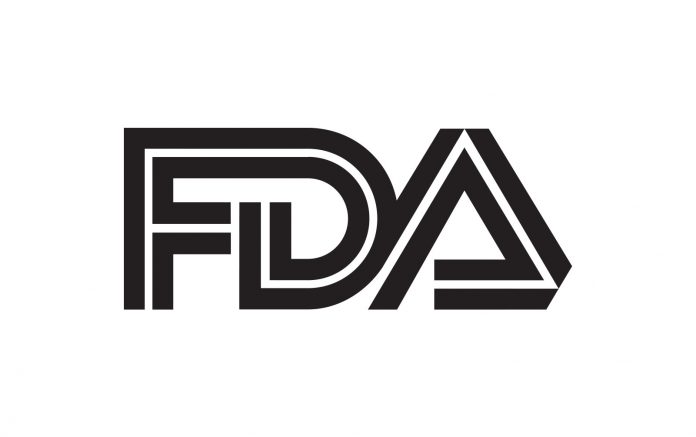By Leah Lawrence
Posted: June 24, 2020
As part of its declaration on tobacco cessation after cancer diagnosis, the IASLC recommended that smoking status, both initially and during the study, should be a required data element for all prospective clinical studies and that these studies should consider designs that could also determine the most effective tobacco cessation interventions.1
These topics and more were discussed during a recent session at the February 2020 U.S. Food and Drug Administration (FDA)/Center for Drug Evaluation and Research (CDER)-American Association for Cancer Research (AACR)-IASLC Workshop to address the criticality of tobacco use assessment in oncology therapeutic trials.
“We need to design clinical trials to have clinically meaningful outcomes using evidence-based care and to improve translation of evidence into clinical practice to improve clinical outcomes,” said Roy S. Herbst, MD, PhD, chief of medical oncology at Yale Cancer Center, who presented at and co-chaired the session. “Smoking can affect the primary endpoints of trials, and the omission of routine tobacco assessment introduces the risk of misinterpretation of results and opportunities to improve outcomes.”
Dr. Herbst opened the session with a presentation detailing what is known about the effects of smoking on lung cancer treatment.
Smoking and Treatment
Among some of the existing evidence examining the effects of tobacco use on lung cancer treatment is a 2013 study of 4,200 patients from a National Comprehensive Cancer Network (NCCN) NSCLC Database Project, which showed that people who smoked at the time of diagnosis had worse survival compared with never smokers.2 Similarly, a 2010 meta-analysis of smoking and cessation in patients with early-stage lung cancer found that smoking significantly decreased disease-free survival and OS while also increasing the risk for developing second primary tumors.3
“Smoking use in current patients remains a problem,” Dr. Herbst said.
Research has also shown that smoking cessation would have an immediate positive impact on health, Dr. Herbst said, with improved treatment efficacy, survival, and quality of life all associated with cessation.
“The full execution of evidence-based cessation interventions is, unfortunately, not as frequent as it could be in oncology settings,” Dr. Herbst said.
Dr. Herbst referenced a 2013 AACR policy statement that issued recommendations for assessment of tobacco use in clinical trials with patients with cancer.3 First among the recommendations was that all patients with cancer from all clinical settings, including clinical trial participants and cancer screening patients, who use tobacco or have recently quit should be provided with evidence-based tobacco cessation assistance.
“This is a teachable moment,” Dr. Herbst said. “We have to work to try to help them to stop smoking.”
Additionally, there should be universal assessment and documentation of tobacco use as a standard of care. This will not only allow for improved cessation assistance to patients but will allow for the further study of the deleterious effects of tobacco use and the benefits of tobacco cessation.
A second recommendation called for researchers to evaluate the confounding effects of tobacco on cancer treatment, disease progression, comorbid events, and survival in all oncology clinical trials from registration to survival endpoints.
For example, Dr. Herbst said, smokers who receive erlotinib have been shown to have different clearance rates, resulting in the need for a higher dose of the drug to have equivalent systemic exposure compared with nonsmokers.
Dr. Herbst said these recommendations are being put to practice in the Lung-MAP Schema, a precision medicine clinical trial for people with advanced NSCLC. The umbrella trial allows many drugs to be tested at one time and is testing several treatments that target genetic changes in NSCLC.
According to Dr. Herbst, smoking questionnaires are completed during enrollment into the study as well as off-treatment. The use of this measure of tobacco use will allow for later pooling of data and meta-analysis that could elucidate potential mechanisms of change and specific populations or conditions that are more or less amenable to treatment, he said.
Dr. Herbst urged attendees to include the “5 A’s” in evidence-based procedures in quality and accreditation protocols:
- Ask about tobacco use at every clinic visit.
- Advise to quit.
- Assess interest in quitting.
- Assist by providing counseling and pharmacotherapy.
- Arrange a follow-up.
“I believe in the last few years academic trials, cooperative groups, and industry trials are now beginning to include these measures more routinely, and those data will be very useful in the future to allow us to assess how tobacco is affecting these treatments,” Dr. Herbst said.
Cooperative Trials
Elyse R. Park, PhD, MPH, of Massachusetts General Hospital and Harvard Medical School, spoke next about the implementation of tobacco use assessment in cooperative group cancer trials.
There is a general lack of understanding of the scope and patterns of tobacco use among patients with cancer, she said. Tobacco use data collected in therapeutic trials is very different than tobacco use data collected in smoking cessation trials.
“As someone conducting tobacco cessation trials using patients [with cancer], we have really aimed to be as inclusive as we can,” she said. “We are not just enrolling patients [with cancer] who are motivated to quit, but [we are] setting the bar for proactive outreach to any smokers willing to talk about their cancer care and tobacco treatment.”
There is a critical need for more information on the effect of tobacco use among patients enrolled in clinical trials. According to Dr. Park’s experience, if providers do not ask about something, in this case, tobacco use, patients often assume it is not important.
“In this case, the dangers of not asking are critically important,” Dr. Park said.
Anecdotally, Dr. Park mentioned that it seems that patients who do not have a smoking-related tumor often do not understand why physicians are asking about tobacco use. As an illustration, she pointed to a 2012 study she conducted with colleagues that looked at smoking among a group of patients with lung cancer or colorectal cancer.5 At diagnosis, 38.7% of patients with lung cancer were smoking, and 13.7% of patients with colorectal cancer were smoking. However, 5 months after diagnosis, only 14.2% of patients with lung cancer were still smoking, whereas, 9% of patients with colorectal cancer were smoking.
“[Patients with] lung cancer were quitting,” she said. “[Patients with] colorectal cancer were not.”
Asking all patients about tobacco use normalizes it, she said.
Dr. Park is currently working with the ECOG-ACRIN therapeutic trials to administer a modified Cancer Patient Tobacco Use Questionnaire at trial enrollment and at 3- and 6-month follow-up to patients enrolled in phase II and phase III trials of various cancer types and treatments.
There are four aims for the collection of this information. The first is to determine the association of combustible tobacco use patterns to other forms of tobacco use, environmental tobacco exposure, and provider-reported cancer-treatment toxicity and dose reduction.
The second aim is to determine the effects of tobacco use on patient-reported physical symptoms and psychological symptoms. The third aim is to examine quitting behaviors and behavioral counseling/support and cessation medication utilization. Finally, the fourth aim is to explore the effect of tobacco use and exposure on treatment duration and dose intensity and on therapeutic benefit of ECOG-ACRIN trials.
The trials include adjuvant trials and trials of advanced disease and cover a variety of cancer types, treatment regimens, and primary trial outcomes.
Analyses of data will be done across categories of smokers (current, former, and never) and based on changes in smoking status. The effects of sociodemographic characteristics and cancer type and treatments will also be explored. Additionally, the type of tobacco use will also be analyzed looking at other forms of tobacco, use of e-cigarettes, use of FDA-approved cessation aids, and the use of other behavioral support.
Currently, these assessments are being conducted across 10 activated sites in eight disease types. To date, they have found that 42% of patients enrolled in therapeutic trials have consented to tobacco study participation, with the majority completing the entire survey.
Industry Perspective
The final speaker of the session provided attendees with an industry perspective on the importance of collecting tobacco history in clinical trials.
“Treatment outcomes are affected by continued cigarette smoking in patients with all malignancies,” said Cathy Pietanza, MD, executive director of oncology clinical research at Merck.
During her presentation, Dr. Pietanza discussed several problems with collecting tobacco use history that need to be addressed.
First, there is a lack of consistent definitions in the literature and guidelines, she said. For example, in the NCCN guidelines, a current smoker is defined as patient who smoked within the past 30 days. In contrast, SWOG defines a current smoker as a patient who has smoked within the past 1 year, and the National Health Interview Study defines a current smoker as someone who smoked at least 1 cigarette within the past 30 days or a patient who smoked within the past year.
“This has been a very big problem for us,” she said.
Another problem is inadequate or inconsistent assessment and documentation of smoking status.
“The few tools that are available haven’t been implemented thus far,” she said.
Assessment of smoking status also depends on patient recall and is associated with stigma. In addition, many trials also only collect data on tobacco use at one time point, generally baseline. Finally, many individual protocols and manuscripts do not consistently provide definitions for current and former smokers.
Dr. Pietanza detailed how Merck collects tobacco use history. In the case of pembrolizumab studies, Merck collected tobacco use history for lung; head and neck; esophageal; hepatocellular carcinoma and biliary tract cancers; and renal cell carcinoma, urothelial, and bladder cancers.
One of the key trials that uses tobacco use history was the KEYNOTE-189 trial, which was pivotal phase III study looking at pembrolizumab or placebo plus pemetrexed and platinum as first-line treatment in metastatic NSCLC.
The pembrolizumab combination demonstrated improved OS benefit compared with chemotherapy. The majority of participants (88%) were current or former smokers. Analyses showed that the risk of death was reduced in current and former smokers as well as in never smokers. However, risk of death was improved further in never smokers compared with current/former smokers.
Outside of KEYNOTE-189, smoking status is more traditionally used in subgroup analyses, Dr. Pietanza said. KEYNOTE-042 was a phase III study of pembrolizumab versus platinum-based chemotherapy as first-line therapy for patients with PD-L1 positive locally advanced or metastatic NSCLC. The study showed an improved OS with pembrolizumab monotherapy compared with chemotherapy. Here, 78% of patients were current or former smokers. In never smokers, the hazards ratios were 1.00 of greater, but the 95% confidence intervals overlapped with those of the overall population, she noted.
“[At Merck], we continue to obtain tobacco history, and after this conference may likely add other indications,” Dr. Pietanza said. “These data will allow us to better interpret outcomes in never smoker and former/current smokers.”
References:
1. International Association for the Study of Lung Cancer. Declaration from IASLC: Tobacco Cessation After Cancer Diagnosis. Published September 4, 2019. Accessed April 22, 2020. https://www.iaslc.org/About-IASLC/News-Detail/declaration-from-iaslc-tobacco-cessation-after-cancer-diagnosis.
2. Ferketich AK, Niland JC, Mamet R, et al. Smoking status and survival in the national comprehensive cancer network non-small cell lung cancer cohort. Cancer. 2013;119(4):847-853.
3. Parson A, Daley A, Begh R, Aveyard P. Influence of smoking cessation after diagnosis of early stage lung cancer on prognosis: systematic review of observational studies with meta-analysis. BMJ. 2010;340:b5569.
4. Toll BA, Brandon TH, Gritz ER, et al. Assessing tobacco use by cancer patients and facilitating cessation: an American Association for Cancer Research policy statement. Clin Can Res. 2012;19(8):1941-1948.
5. Park ER, Lapuntich SJ, Rigotti NA, et al. A snapshot of smokers following lung and colorectal cancer diagnosis. Cancer. 2012;118(12):3153-3164.











